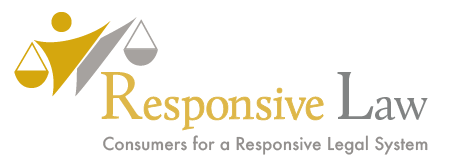Massachusetts Supreme Court Rules on Non-Lawyer Real Estate Closings
4/25/2011
Written by Tom Gordon
The Massachusetts Supreme Judicial Court (SJC) yesterday issued a ruling on whether lawyers are required to be present at real estate closings. In Real Estate Bar Association v. National Estate Information Services, the Court held that, although non-lawyer "conveyancing" companies that provide closing services are not practicing law, they nevertheless are prohibited from providing closing services, because those must be provided by a lawyer. Major media outlets have covered the ruling as the resolution of a turf battle between lawyers and non-lawyers in providing services. That's certainly one aspect of the case, but it also has important implications for legal consumers in Massachusetts, both in real estate transactions and in other legal matters.
Our position is the same as the Federal Trade Commission's: "Permitting competition by lay services allows consumers to consider more relevant factors in selecting a provider of settlement services, such as cost, convenience, and the degree of assurance that the necessary documents and commitments are sufficient." We are encouraged, however, by the Court's recognition that a lawyer's role in a closing is "not only the presence but the substantive participation of an attorney on behalf of the mortgage lender." In other words, lawyers must provide actual legal services at a closing so that consumers who are forced to pay for the lawyer receive something beyond his or her mere presence.
The Court also made some encouraging pronouncements about what activities may be undertaken by non-lawyers. One of the arguments frequently made by lawyers trying to retain their monopoly is that if a service includes even one element that must be performed by a lawyer, then all elements of the service must be performed by a lawyer. When courts interpret definitions of the practice of law, it's important that they recognize that lawyers provide a wide range of services, but that only a subset of those services are exclusive to lawyers The Court applied that principle correctly here, recognizing that many of the activities involved in conveyancing are not considered the practice of law, and that "the talismanic invocation of the word 'conveyancing' is not sufficient to require that all of them be performed by or under the supervision of an attorney."
In sum, while the Massachusetts high court failed to take the large pro-consumer step of forcing Massachusetts to join several other states in allowing non-lawyer closings, it did establish a principle limiting when consumers can be forced to hire a lawyer.
Tom Gordon is Executive Director of Responsive Law.
